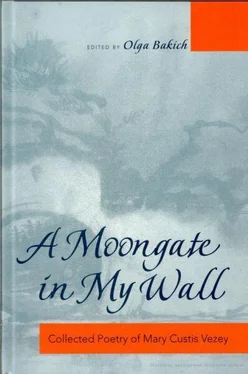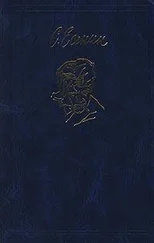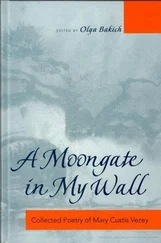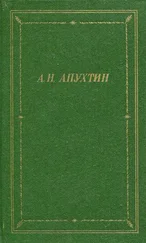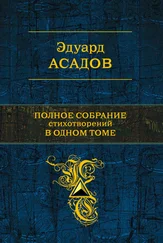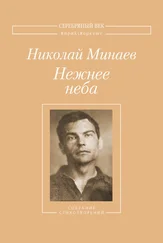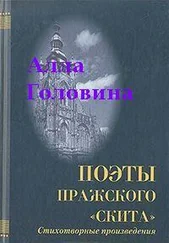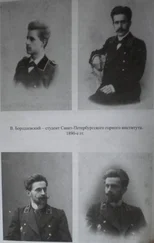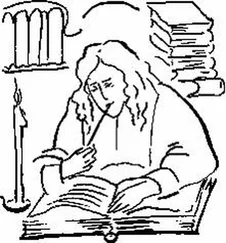The collection was noticed in Europe. In 1937, the Shanghai-Paris journal Russkie zapiski (Russian Notes) reviewed several books published in Shanghai. The reviewer, concealed under the initials I.F., commented on Mary Vezey's poetry: "in the first collection, the Russian poems seemed like a translation from English, and the English poems a translation from Russian." This second collection, he continued, shows hard work, but new poems "lack independence. One feels the influence of Blok, of the lyrical poetry of Gumilev, and most of all of Akhmatova. These are real 'women’s' poems. Most of them are sad love lyrics." [24] I.F., "Emigrantskie pisateli na Dal'nem Vostoke" (emigre Writers in the Far Hast), Russkie zapiski (Russian Notes), Shanghai-Paris, no. 1, 1937, p. 324–323.
At the end of the 1930s, the Si no-Japanese War was raging in China, and the Second World War was about to engulf the world. In 1939, the Vezey family left China for San Francisco, a city favoured by many Russians from China. Mary Vezey's father, who had fallen seriously ill in Shanghai, died soon after their arrival in 1939; her mother in 1950. In September 1940, Mary Vezey married Evgenii Fedorovich Tourkoff (1908–1981), a Harbin Russian, a graduate of the Harbin Polytechnic Institute, an engineer, and soon they had a daughter Olga. In the 1960s, Mary Vezey worked as an assistant secretary to Professor Edwin B. Boldrey, a prominent neurosurgeon and Chairman of Neurological Surgery at the University of California Medical Center.
She continued to write and translate, and her poems appeared in emigre periodicals in the USA and Europe. Eight poems were included in Sodruzhestvo (Concord) (Washington, 1966), a significant collection representing the work of 75 living Emigre poets. In the 1960s, she offered a collection of her translations of the emigre poets Dmitrii Klenovskii and Vladimir Smolenskii to the Wesleyan University Press, Connecticut, explaining in the proposal: "Klenovsky (now living in Germany) is regarded as the most important of the Russian emigre poets. (…) He is quite unknown in English, although represented in an anthology published by Edinburgh University, as well as in an important German anthology. Smolensky, who died in Paris in 1961, was another Emigre who attained lasting fame among readers of Russian poetry. Both men will be read and admired long after Evtushenko and Voznesensky are forgotten." [25] Letter from M. Vezey to Wesleyan University Press, undated, ca. end of 1960s.
At the time, however, there was not much interest in emigre poets, and no publisher was found.
In 1973, her third collection, Golubaia trava (Blue Grass), dedicated to her husband, came out in San Francisco. It contained 47 poems in Russian; sixteen came from the second collection, one had already appeared in the Paris journal Vozrozhdenie (Resurrection), and another both in Vozrozhdenie and in the collection Sodruzhestvo. All are undated, and only the reader familiar with the second collection can see what is new.
Iu.V. Kruzenshtern-Peterets, a former Harbin poet and journalist, praised the poet in her review for "powerful and beautifully polished" poems, for "mystical," "Blok-like" pictures, and for Gumilev's motifs, reserving special praise for the poem "Etiud" (Etude) (poem 233). She had reservations about the key poem "Ostrova" (Islands) (poem 214): it lacked "the music inherent in the poet's works, and the precision of line," and 'suffered from rhetoric." [26] Ju. Kruzenshtern-Peterets, "Tret'ia kniga Marii Vizi" (Third Book by Mary Vezey J, Novoe russkoe sloiw (New Russian Word), New York, 23 September 1973.
In a radio broadcast for "The Voice of America," Iu.V. Kruzenshtern-Peterets said that in Mary Vezey's poetry "one can trace some influence of the symbolists as is evident from the very title of the book. 'Blue grass' grows on an island yet unseen by man; perhaps it is a magical country, perhaps a paradise. At the same time, in Mary Vezey's poetry one can find an affinity with acmeism: dislike of formal pretentiousness, fineness of line, genuine lyricism, and, the main thing, melodiousness. Her poems sing." [27] Ju. Kruzenshtern-Peterets, "Radioperedacha stantsii 'Golos Ameriki' о sbornike stikhov Marii Vizi "Golubaia trava" (Radiotransmisson of the "Voice of America" on the Collection of Poems "Golubaia trava" by Mary Vezey), Kharbinskie kommerchcskie uchilishcha Kit. Vost. zhel. Dor., no. 12, 1974, p. 5.
Another reviewer, the priest A. Pavlovich, praised "the exceptional sincerity of the poet," "the fine cast of her heart," "the high personal expectations," "the exemplar)' form of her presentation," "her simplicity" and "her serenity," [28] A. Pavlovich, "Knizhnaia polka. M. Vizi. Golubaia trava. Tret'ia kniga stikhov" (Bookshelf. M. Vezey. "Golubaia trava." The Third Book of Poetry.), Russkain zhizn' (Russian Life), 10 August 1973.
while in the opinion of the emigre poet lu. Terapiano the poems "bear evidence of great experience: they are not only sincere, but also well reasoned, inwardly focused, and concentrated. In her poetry, ordinary pictures of nature, urban landscapes, and daily surroundings common to us are always related to personal feelings and are perceived both here, on earth, and on a higher plane. I… J With short broken lines and the simplest images she can give a picture filled with inner content and great concealed meaning." [29] Ju. Terapiano, "Novye knigi" (New Books), Russknia mysl (Russian Thought), Paris, 20 December 1973.
Emigre poet Valerii Pereleshin thought very highly of Vezey's poetry, writing to her about the poem "Как strashno odinoki my na svete" (How terribly lonely we are in this world) (poem 244): "Harbin can be proud of you as a poet. The poem is beautiful and technically perfect. 1 must say that I am waiting for your book with impatience. And 1 foresee that 'the universal scale' of ЈmigrЈ poetry will shift as soon as this future book comes out. (…) And another special praise: your rhymes are precise, taken from the living language, not composed." [30] Letter from V. Pereleshin to M. Vezey, 10 October 1972.
In another letter, he defined her poetry as "poems with 'reticence' which have to be thought through. I love such poems. (…) I always welcome 'reticence': this is partly the influence of the Chinese classical poets who never dotted their 'i's. The reader was a participant in the creation. Poems with 'reticence' are far from 'nonsense.' They are also justified by the fact that poetic feeling is always irrational to some degree, not fully expressible. (…) It is great that you are sparing and laconic in your poems. I regard this as an ideal of poetic architecture. I think that Soviet poets are so long-winded because they are paid per line. No one pays emigre poets anything for their poetry." [31] Letter from V. Pereleshin to M. Vezey, 9 June 1971.
His review, however, expressed his contentious view of "women poets." On the one hand, he characterized Golubaia trava as "a collection of pure, good poetic quality, written by a woman-poet (zhenshchina-poet \." For him, many poems exhibit the style of "a poet, not a poetess" (poet, a ne poetessa) and in them "Pegasus takes flight, and the spirit touches the outlines of the beyond. I…) In spite of its purely feminine emotionality, Golubaia trava is an excellent book." On the other hand, he stated: "M. Vezey dedicates her third book to her husband, and this places her among the followers of Akhmatova. (…) As a poetess (poetessa J, M. Vezey is very strong, but for me personally, poetry begins at the place where the poetess ends and the poet begins. Mary Vezey has quite a few poems which are already free from emotionality which is hard to overcome, and one is extremely pleased by the poems where she speaks simply as a person, and not as a woman." [32] V. Pereleshin, "M. Vizi. "Golubaia trava" (M. Vezey. "Blue grass"), Novyi zhumnl (The New Review), New York, no. 114, 1974, p. 248–249.
This chauvinistic prejudice and confusion of issues are reflected in Pereleshin's poem "Nochnie proletaiut poezda" (Night trains rush on), dedicated to Mary Vezey, where Pereleshin speaks of her "sadness with its enormous eyes," her barely audible voice, almost a whisper, and her "impersonal," "asexual" signature "M. Vezey." [33] V. Pereleshin, "Nochnye proletaiut poezda," Russkaia zhizn', 12 March 1971.
Her surname, indeed, does not indicate gender in the way many Russian surnames do, but what he failed to understand was that this signature, instead of "Mary Vezey," meant that to a true poet gender did not matter.
Читать дальше
